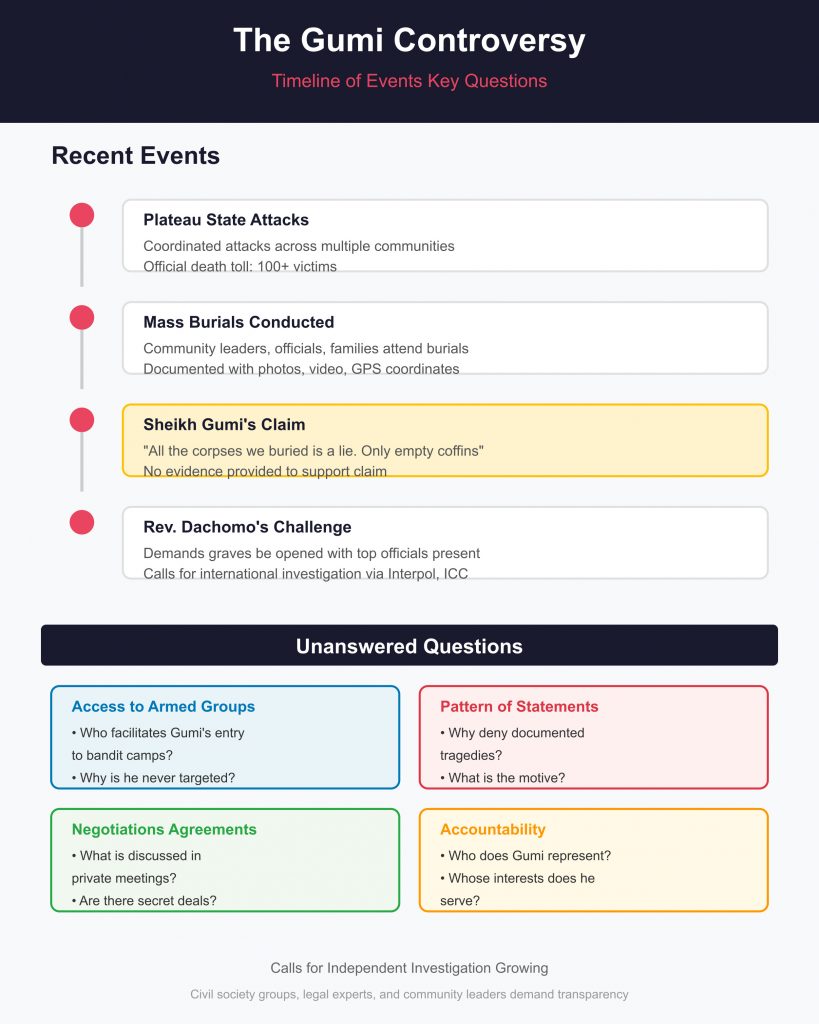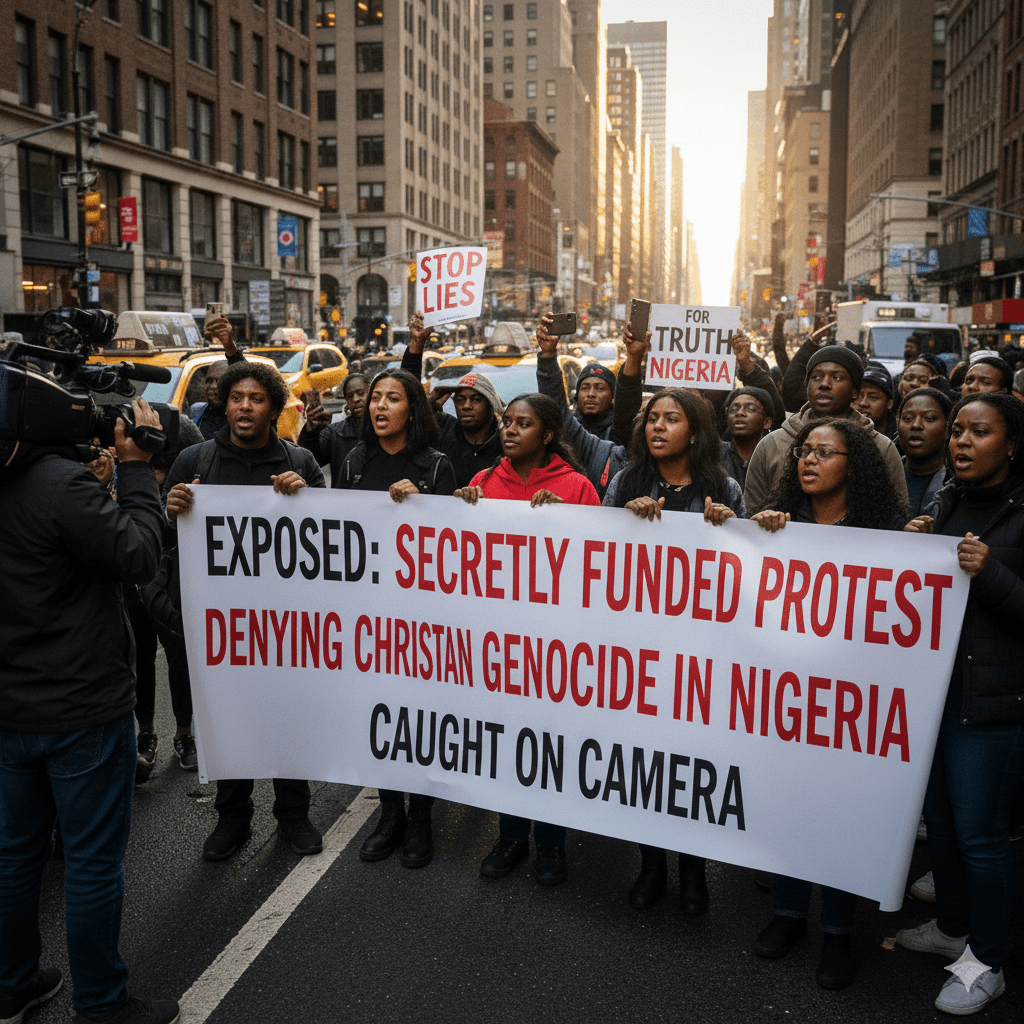Last Updated on 23 November 2025

Reverend Dachomo demands international probe as cleric’s dismissal of Plateau burials deepens scrutiny of his role in Nigeria’s security crisis
Reverend Ezekiel Dachomo has issued an extraordinary challenge to Sheikh Ahmad Gumi: open the graves of Plateau massacre victims in the presence of Nigeria’s top security officials to prove the bodies are real.
The demand follows Gumi’s alleged claim that the mass burials conducted after recent attacks were fabricated. According to Dachomo, the cleric said: “All the corpses we buried is a lie. They are only coffins. They are empty.”
In a video posted on X, a visibly emotional Dachomo called the claim “dangerous, insulting, and an attempt to erase the suffering of Christian communities repeatedly targeted by armed groups.”
“Is this an empty coffin?” he asked, standing over one of the burial sites. “Who is lying?”
A Public grave-opening challenge
Dachomo insisted the graves be opened in front of a high-level delegation that includes the Minister of Defense, the DSS Director-General, the Chief Judge, and the Chiefs of Army and Defense Staff.
“Let us dig the graves and see what is there,” he said.
He also instructed youths to guard the burial site day and night, alleging fears of tampering:
“Very soon they will send their machines in the night to remove evidence.”
Dachomo said he has escalated the issue beyond Nigeria.
“He must appear before Interpol. Even if Gumi hides in Saudi Arabia, they will fish him out. He will appear before the ICC,” he declared.
A pattern under scrutiny
Gumi’s “empty coffins” claim is the latest in a long-running pattern of controversial interventions by the cleric that repeatedly raise questions about his access, motives, and influence over Nigeria’s security narrative:
- Reframing violent groups: Gumi regularly portrays bandits responsible for mass killings and kidnappings as misunderstood victims, a narrative that conflicts with documented atrocities.
- Unusual access: He has travelled into heavily armed bandit camps — places inaccessible to journalists and often to security forces — without harm or obstruction. How these meetings are arranged remains unclear.
- Criticism of military operations: He often condemns counteroffensives even when launched in response to massacres or mass abductions.
- Advocacy for amnesty: He has pushed for blanket amnesty for bandits, a proposal widely rejected by security experts.
“They know Government cannot do anything”
Dachomo’s outrage expanded to what he described as government failure to protect vulnerable communities.
“The government exposed us to Fulani killings,” he said. “Their silence is exposing Christians all over Nigeria.”
He added that armed groups act with impunity:
“They kill because they know the government cannot do anything.”
Security and legal implications
A retired intelligence officer told this newsroom that statements like Gumi’s have real consequences.
“When a high-profile cleric downplays atrocities, it emboldens violent actors. It signals that someone influential is sanitizing their actions.”
Dr. Judith Asuni, a conflict resolution expert in Jos, noted:
“Misinformation in conflict zones kills. It fuels reprisals, destroys trust, and collapses peace efforts.”
Legal analysts say the combination of Gumi’s access to armed groups and his repeated contradiction of documented facts raises urgent questions.
Dr. Chidi Odinkalu, former NHRC chairman, said:
“If you position yourself as a peace broker with privileged access, the public has a right to know: Who do you represent? What have you negotiated? And in whose interest?”
A crisis of trust
For families in Plateau, Gumi’s alleged statement feels like a second wound.
“Go to my Facebook — you will see me crying at the grave,” Dachomo said. “God of vengeance will fight.”
Community leaders say Gumi has visited bandit camps but has never visited massacre sites, met survivors, or offered condolences — a contrast they find troubling.
What happens next?
It is unclear whether authorities will respond to Dachomo’s demand for a public grave-opening. Officials have yet to address Gumi’s alleged comments or the challenge issued against him.
But the incident has intensified calls for greater scrutiny of self-appointed mediators who operate without oversight in Nigeria’s conflict zones.
As one security analyst put it: “Nigeria doesn’t just need a stronger government response. It needs transparency from anyone claiming to speak with or for groups that have killed thousands.” For grieving families, the question remains painfully simple:
Why must they prove that their dead are real?



